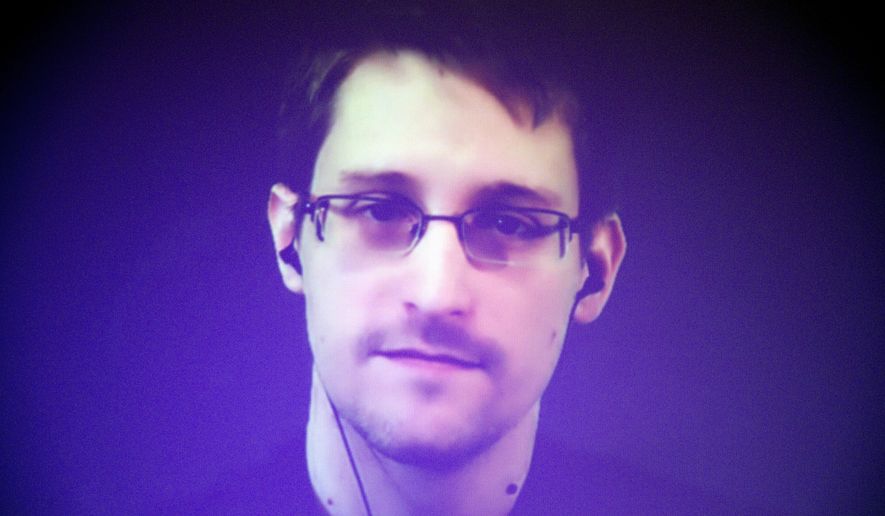Sweeping new surveillance measures approved by lawmakers in Russia this week were denounced Saturday by one of the country’s most well-known residents: former NSA contractor Edward Snowden.
Responding to an expansive package of legislative proposals passed Friday in the State Duma, Mr. Snowden took to Twitter early Saturday to urge President Vladimir Putin to not sign the measures into law.
“Russia’s new Big Brother law is an unworkable, unjustifiable violation of rights that should never be signed,” Mr. Snowden tweeted.
If authorized by Mr. Putin, the measures would require telecommunication companies and internet providers to record the content of its customers’ conversations and make them available to law enforcement for up to six months. Other records concerning those communications, known as metadata, would have to be kept for upwards of three years.
Additionally, the legislation would effectively ban the use of digital encryption and introduce new penalties for individuals who use social media to make “public statements recognizing the ideology and practices of terrorism to be [morally] correct.”
Russia is already considered one of the worst industrialized nations in the world with respect to internet freedoms, but legislation approved in Moscow this week would ensure that authorities are able to monitor the digital communications and online activities of everyone within its borders.
“Mass surveillance doesn’t work,” Mr. Snowden said on Twitter. “This bill will take money and liberty from every Russian without improving safety. It should not be signed.” Compelling internet companies to store the communications of millions of Russians “is not just dangerous, it’s impractical,” he added.
Three of the largest telecoms operating in Russia — MTS, Megafon and Vimpelcom — have each publicly rejected the proposal and said it would require infrastructure that would cost more to build and maintain than the companies could ever make. Yandex, a Russian search engine, said legislation would cause an “excessive limitation of the rights of the companies and users.”
Mr. Snowden, 31, was granted asylum in Russia after he left the United States in 2013 and supplied journalists with thousands of documents detailing the U.S. intelligence community’s operations, particularly with respect to internet surveillance.
In 2014, he personally asked Mr. Putin about Russia’s surveillance efforts during a televised question-and-answer session with the president.
“Does Russia intercept, store, or analyze in any way the communications of millions of individuals, and do you believe that simply increasing the effectiveness of intelligence or law enforcement investigations can justify placing societies — rather than subjects — under surveillance?” Mr. Snowden asked.
“Hopefully – I hope very much – we will never act in this manner,” Mr. Putin responded. “Besides, we do not have such technical capabilities and funds as the United States. But the main thing is that, happily, our security services are strictly controlled by the state and society and their operation is strictly regulated by law.”
Mr. Snowden later qualified the president’s response as “evasive.”
“I blew the whistle on the NSA’s surveillance practices not because I believed that the United States was uniquely at fault, but because I believe that mass surveillance of innocents – the construction of enormous, state-run surveillance time machines that can turn back the clock on the most intimate details of our lives – is a threat to all people, everywhere, no matter who runs them,” Mr. Snowden wrote for The Guardian newspaper.
• Andrew Blake can be reached at ablake@washingtontimes.com.




Please read our comment policy before commenting.